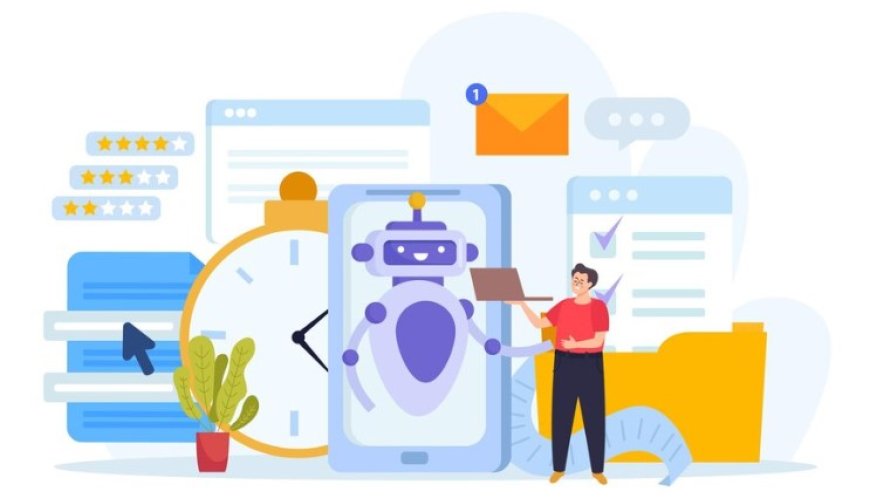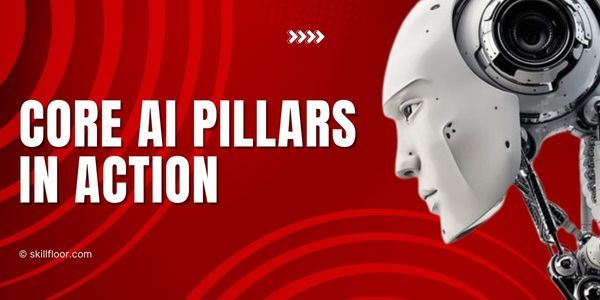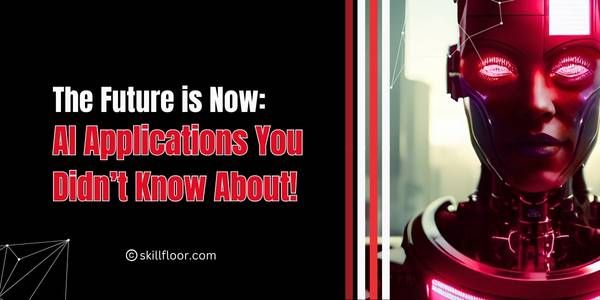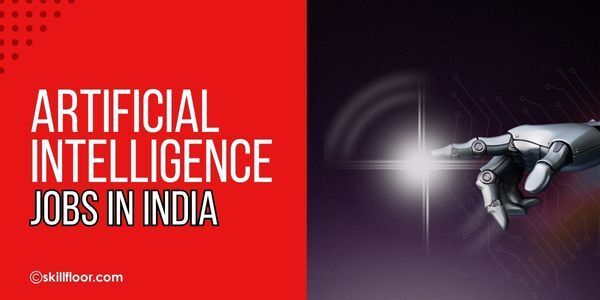The Impact of Artificial Intelligence on Digital Marketing Strategies
Explore how Artificial Intelligence is transforming digital marketing strategies. Stay ahead with insights on AI's impact in the evolving digital landscape.

In today's digital world, Artificial Intelligence (AI) is playing a big part in shaping how businesses connect with their audiences. Imagine AI as a smart helper for marketers, making their jobs easier and more effective. It's like having a virtual assistant that understands what customers want and helps create tailored experiences.
AI in digital marketing has been growing rapidly. According to recent stats, more businesses are realizing the benefits of using AI tools to enhance their marketing efforts. In fact, over 80% of marketers believe that AI improves overall performance and productivity. Picture this: AI is like the secret sauce that helps businesses stand out in the crowded online space.
Not just that, AI is helping marketers understand customer behavior better than ever before. Around 64% of marketers say that AI allows them to have a deeper understanding of their audience. It's like having a magic wand that reveals what customers like and dislike.
Challenges Faced by Traditional Digital Marketing Approaches
Traditional digital marketing, while once effective, is now facing some challenges in keeping up with the fast-paced changes in the online world. Let's break down a few complications faced by these older approaches:
-
Limited Personalization:Traditional methods often treat all customers the same way, missing the chance to create a personal connection. Without personalization, it's like sending a generic message to everyone, and in today's digital age, customers want to feel valued and understood.
-
Static Content: Older marketing approaches often rely on static content that doesn't adapt to individual preferences. In a world where people crave dynamic and engaging content, static materials may not capture the attention or interest of the audience.
-
Delayed Decision-Making: Traditional marketing strategies take time to gather and analyze data, leading to delayed decision-making. In the fast-paced digital landscape, quick and data-driven decisions are crucial to staying ahead of the competition.
-
Inability to Anticipate Trends: Traditional methods may struggle to anticipate and adapt to emerging trends in consumer behavior. With the online world evolving rapidly, businesses need to be agile and responsive to the latest trends to stay relevant.
-
One-Way Communication: Traditional marketing often relies on one-way communication, where the brand sends a message, and the customer receives it. In the interactive digital era, customers want to engage with brands, share their opinions, and be part of a conversation.
-
Difficulty in Measuring ROI: Older marketing approaches may find it challenging to accurately measure Return on Investment (ROI). Precise ROI measurement is crucial for optimizing marketing strategies and allocating resources effectively.
Recognizing these challenges is the first step in understanding why there's a need for a shift in digital marketing strategies. The complications arising from traditional methods highlight the importance of embracing new, more adaptive approaches to meet the ever-changing expectations of today's consumers.
How Can AI Transform Digital Marketing Strategies?
AI has the power to revolutionize digital marketing strategies, offering businesses innovative ways to connect with their audience and enhance overall performance. Here's how AI can bring about this transformation:
AI-Powered Data Analysis
One of the standout features of AI is its ability to make sense of the massive amounts of data floating around. No more drowning in spreadsheets and graphs. AI brings predictive analytics to the table, helping businesses understand consumer behavior before it even happens. Imagine being able to predict what your customers want before they know it themselves. That's the power of predictive analytics.
But it's not just about looking into the future; AI is also a wizard at real-time data processing. No more delays in decision-making. With AI, businesses can process information as it comes in, enabling quick and informed decisions. This real-time capability is a game-changer in a world where timing is often everything.
Personalization and Customer Experience
Remember the days of one-size-fits-all marketing? Well, those days are numbered. AI is ushering in an era of personalized content and recommendations. Think of it as having a personal shopper, but in the digital realm. AI analyzes user behavior and tailors content and product recommendations based on individual preferences. It's like having a marketing strategy that speaks directly to each customer.
Enhancing the customer journey is another feather in AI's cap. AI-powered chatbots are changing the way businesses interact with their audience. These chatbots aren't your typical automated responses; they understand context and provide personalized assistance. This not only improves the customer experience but also frees up human resources to focus on more complex tasks.
Automation in Marketing Campaigns
Let's face it; manual processes can be a real headache. Enter AI automation, the superhero of streamlining marketing processes. From scheduling social media posts to managing email campaigns, AI takes the mundane tasks off your plate, allowing your team to focus on creativity and strategy. It's like having a virtual assistant that never sleeps.
Optimizing ad targeting and placement is another area where AI shines. No more shooting in the dark and hoping for the best. AI analyzes user data to understand preferences and behaviors, ensuring that your ads are seen by the right people at the right time. This targeted approach not only increases the effectiveness of campaigns but also saves resources that might be wasted on irrelevant audiences.
AI and SEO Strategies
Search Engine Optimization (SEO) is the magic wand that determines whether your business is visible online. AI adds an extra layer of intelligence to SEO strategies. Intelligent keyword optimization ensures that your content is not just optimized for search engines but also resonates with your target audience. It's about speaking the language your customers use.
Content generation and optimization using AI take the burden off content creators. AI can analyze what works and what doesn't, helping you refine your content strategy. From blog posts to product descriptions, AI ensures that your content is not just quantity but quality, engaging your audience and improving your search engine rankings.
The impact of AI on digital marketing is huge. It's like a digital assistant, helping businesses understand what people want and making marketing more personal. Looking ahead, future trends show even more exciting possibilities. Businesses that embrace AI will likely see sustainable growth in digital marketing because it helps them keep up with changes and connect better with customers. So, in this fast-paced digital world, hopping on the AI train isn't just a good idea; it's kind of like having a secret weapon for success in the ever-evolving landscape of digital marketing.




























































